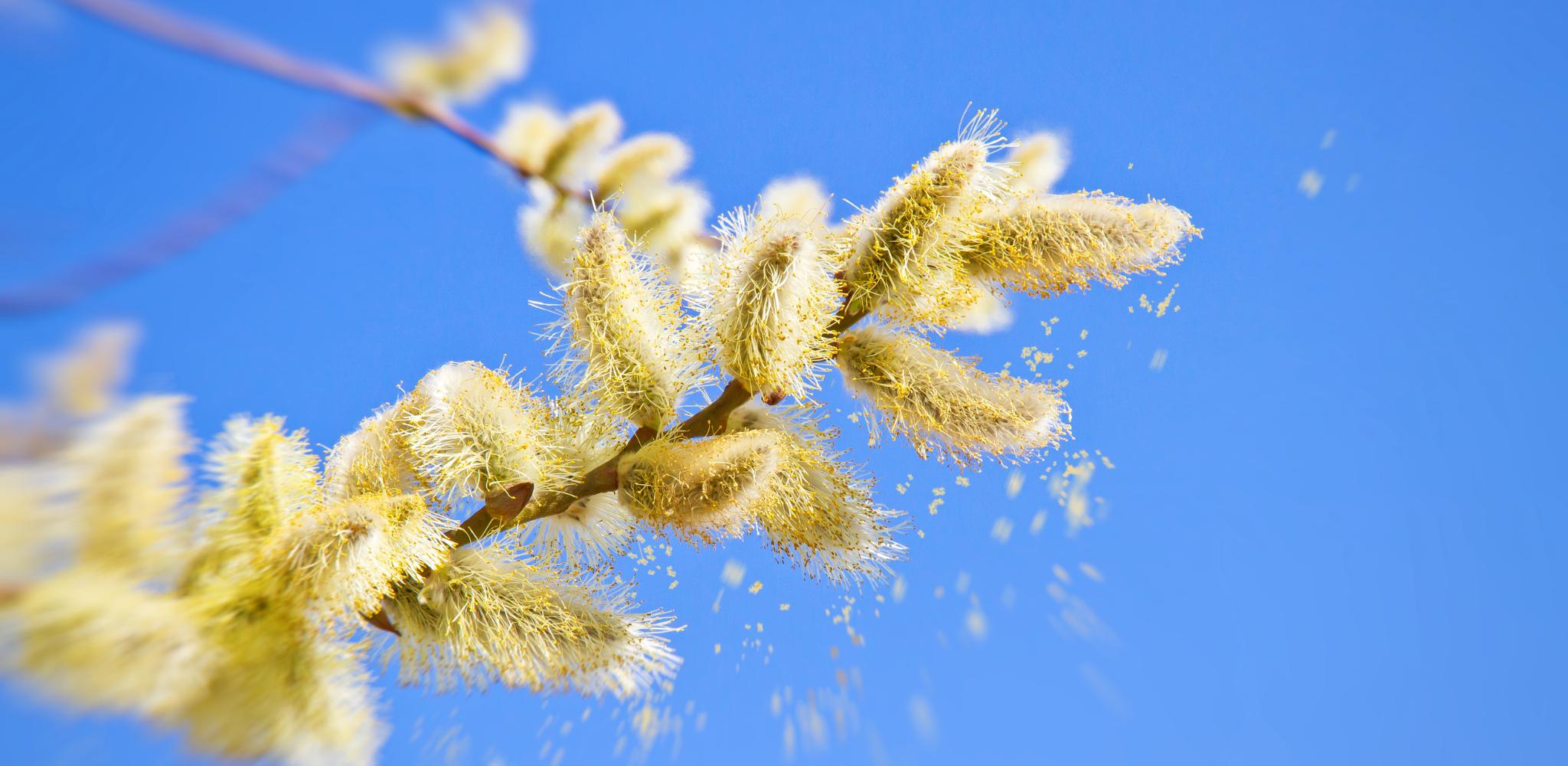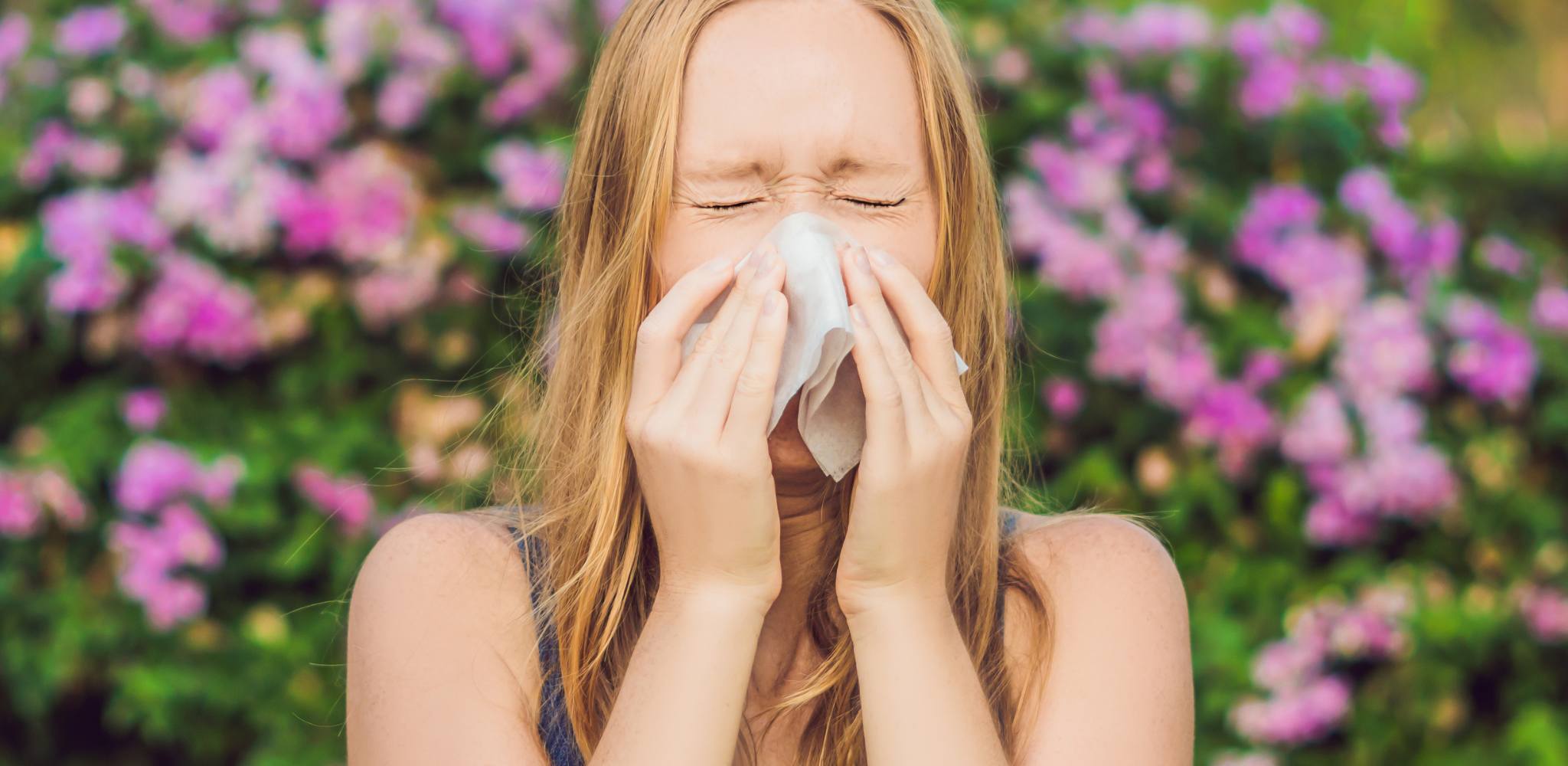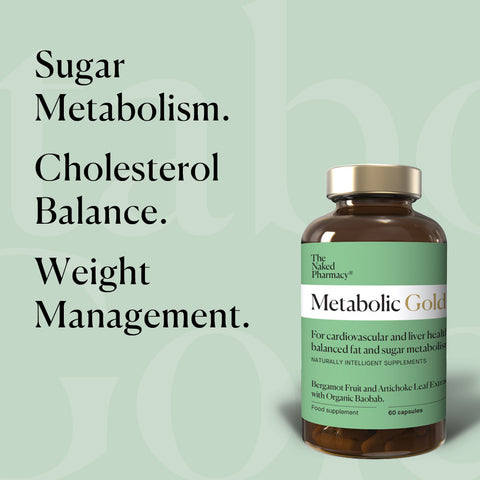Journal
Hay fever? No problem! Enjoy spring to the fullest with Natruflex Turmeric
What is hay fever?
Spring is here, and along with blooming flowers and the much-anticipated warmer weather comes the seasonal antagonist for many: hay fever.
Hay fever, also called allergic rhinitis, causes cold-like symptoms. These may include a runny nose, sneezing and itchy eyes. But unlike a cold, hay fever isn't caused by a virus, it is caused by an allergic response to a harmless outdoor or indoor substance the body identifies as harmful (allergen).
Allergens can be inhaled, ingested, or enter through the skin and trigger an immune response causing symptoms of hay fever.
Common allergens that can trigger hay fever symptoms include pollen and dust mites. Tiny flecks of skin shed by cats, dogs, and other animals with fur or feathers (pet dander) also can be allergens.
Pollen is a fine particle released by plants as part of their reproductive cycle. It contains proteins that can cause the nose, eyes, throat and sinuses to become swollen, irritated and inflamed.
You can have an allergy to:
- Tree pollen, released during spring.
- Grass pollen, released during the end of spring and beginning of summer.
- Weed pollen, released in late autumn.
Symptoms of hay fever
- Sneezing and coughing
- A runny or blocked nose
- Itchy, red or watery eyes
- Itchy throat, mouth, nose and ears
- Loss of smell
- Pain around the sides of your head and your forehead
- Rash
- Headache
- Feeling tired

When does hay fever season start and end?
Symptoms are usually worse between late March and September, especially when it's warm, humid and windy. This is when the pollen count is at its highest.
You can check the latest pollen count here
How do you know if it's hay fever or a cold?
As allergies and colds share many of the same symptoms, it can often be difficult to determine which you are suffering from.
Hay fever can last for weeks or months, unlike a cold, which usually goes away after 1 to 2 weeks. Symptoms of a cold may include a sore throat or fever whereas these are uncommon if you are suffering from hay fever.
Hay fever and the immune system
Symptoms of hay fever occur because the immune system perceives the allergens as harmful invaders and goes into defence mode.
- Immune system trigger: When someone with hay fever comes into contact with an allergen (like pollen), their immune system responds by recognising these particles as potential threats. In individuals sensitive to these allergens, the body's immune system treats them as if they were harmful pathogens, such as viruses or bacteria.
- Production of antibodies: The immune system produces immunoglobulin E (IgE) antibodies specific to the allergen. These antibodies are part of the body's adaptive immune response, designed to recognise and bind to the allergen upon future exposure. Each IgE antibody can be very specific, reacting against certain pollens and allergens. This means that a person can be allergic to one type of pollen, but not another.
- Activation of mast cells: The IgE antibodies attach to mast cells, which are a type of white blood cell found in great numbers in surfaces exposed to the external environment, such as the skin and mucous membranes in the nose. Mast cells are loaded with granules containing histamine and other chemicals.
- Release of histamine: When the allergen enters the body again and binds to the IgE antibodies on mast cells, it triggers the cells to release their contents, including histamine, into the surrounding tissues and bloodstream.
- Symptoms of hay fever: Histamine binds to receptors on nearby blood vessels and other cells. This binding causes the blood vessels to become more permeable, leading to leakage of fluid into the tissues, which causes swelling and contributes to typical hay fever symptoms like a runny nose, watery eyes, and sneezing. Histamine can also irritate nerve endings, leading to itchiness.

Who is most at risk of hay fever?
Research has found that 49% of the UK has had hay fever symptoms, affecting millions of individuals and making it one of the most common allergies.
Certain factors can make some individuals more susceptible to hay fever than others. Understanding who is at higher risk can help in prevention and management strategies. Here are key groups and factors that influence susceptibility to hay fever:
- Having asthma
- Having other allergies
- Having atopic dermatitis or eczema.
- Having a genetic predisposition to asthma or eczema.
- Younger children and adults are more likely to suffer from asthma and often symptoms improve with age.
- Living or working in an environment that constantly exposes you to allergens — such as pollen, animal dander or dust mites.
- Being exposed to smoke and strong odours that irritate the lining of the nose.
- Some alcoholic drinks, particularly beer and wine, contain histamine which can exacerbate allergy symptoms.
How to manage hay fever?
There is an increasing number of adults and children suffering from hay fever and its symptoms. Symptoms can sometimes be mild however some individuals can find it has a substantial impact on their day-to-day life – interfering with how well you perform at work or school.
Here’s what you can do to help make the most of spring and summer and minimise your symptoms.
Limit exposure to allergens
Stay indoors on high pollen days: Check daily pollen forecasts and try to stay indoors when pollen counts are high, typically on dry, windy days.
Close windows: To prevent pollen from entering your home or car, keep windows closed during pollen season and use air conditioning, if possible, which helps filter out pollen.
Use air purifiers: Consider using air purifiers with HEPA filters in your home, especially in bedrooms, to remove pollen, dust, and other allergens from the air.
Personal hygiene and clothing
Pollen can accumulate on your clothing and hair, so it’s advisable to change clothes and take a shower after returning indoors to remove any allergens.
Wear sunglasses and a hat to help keep pollen out of your eyes and off your hair.
Wash bedding regularly using hot water weekly to remove allergens.

Manage indoor air quality
Regularly vacuum with a HEPA-filter vacuum cleaner and dust with a damp cloth to reduce indoor allergens like dust mites and pet dander, which can exacerbate hay fever symptoms.
Control humidity using dehumidifiers to keep indoor humidity below 50% to help prevent the growth of mould, which can trigger symptoms.
Diet and medications
Stay hydrated: Drinking plenty of fluids can help thin nasal secretions, making it easier to breathe, and relieve a stuffy nose and irritated throat.
Regular use of a saline nasal spray can help rinse allergens out of your nasal passages and relieve congestion.
Antihistamines: These can help relieve sneezing, itching, a runny nose, and watery eyes by blocking histamine, the substance your body makes during an allergic reaction.
Decongestants: These can provide temporary relief from nasal stuffiness but should not be used for more than a few days without consulting a doctor.
Nasal corticosteroids: These sprays help reduce nasal inflammation and are most effective when used before symptoms start and regularly during the allergy season.
Over the counter or prescribed medications like antihistamines, decongestants, and corticosteroid nasal sprays can help alleviate hay fever symptoms. Some possible side effects of antihistamines include drowsiness, dizziness, dry mouth, blurred vision, and constipation.

While there are numerous over-the-counter options to help manage symptoms of hay fever, an increasing number of people are turning to natural remedies to avoid side effects and potential medication interactions.
Natruflex Turmeric
Natruflex Turmeric contains high-strength turmeric. It is the presence of the bioactive compounds known as curcuminoids which have been proven to have powerful anti-inflammatory properties.
Symptoms of hay fever such as sneezing, nasal congestions and sinus pressure are largely driven by inflammation caused by the immune system's response to allergens. Turmeric will help to mitigate this response by inhibiting certain pathways and enzymes in the body that lead to inflammation.
Natruflex Turmeric can be taken as a preventative therapy to stop the onset of symptoms as well as taken when symptoms are present to reduce their severity.
Adults and children (12+) can take ONE to TWO capsules daily depending on their symptoms.
For optimal results, our pharmacists recommend taking 1 capsule of Natruflex Turmeric daily before hay fever season starts (March) and continue throughout spring/summer to keep symptoms well controlled.

Gut Love
The gut microbiome, which is the ecosystem of bacteria and other microorganisms living in the digestive tract, plays a critical role in the development and function of the immune system.
As we now know, 70% of our immune system is located in the gut. It is therefore no surprise that a healthy gut microbiome will promote a balanced immune response, which can prevent overly aggressive reactions to non-harmful substances like pollen, thereby potentially reducing allergic responses.
Many factors can damage the balance of healthy bacteria in the gut such as stress, medications and illness. Gut Love contains 19 strains of healthy bacteria and will help to restore the balance of the gut microbiome.
Gut Love is our award-winning symbiotic supplement (containing pre and probiotics) that will help to support the gut microbiome and modulate our body’s immune responses by promoting tolerance to allergens and reducing the inflammatory response associated with hay fever.
Some studies have suggested that certain probiotics can reduce the symptoms of hay fever. For example, strains such as Lactobacillus paracasei, Lactobacillus fermentum, and others have shown potential in clinical trials to reduce eye and nasal symptoms of hay fever. Both of these strains can be found in Gut Love.
Our pharmacists recommend taking TWO capsules of Gut Love each morning with breakfast.
Rhinodoron
Rhinodoron is a natural nasal spray by Weleda designed to help provide relief from symptoms such as sneezing and nasal congestion.
The organic aloe vera and natural saline solution perfectly match the body's balance of sodium and potassium salts. So being 100% natural means Rhinodoron can be used safely over protracted periods for daily nasal hygiene and symptom relief.
It is suitable to use from the age of 3 months +.
Be prepared this spring/summer and be proactive to help significantly reduce the impact of hay fever on your daily life, helping you to enjoy the outdoors more comfortably during allergy season.
Call our pharmacist if you have concerns
Our expert pharmacists are always on hand to answer any questions you might have and to make tailored recommendations based on your individual needs. Please contact us for free health advice on:
@: pharmacist@thenakedpharmacy.com
T: 01483 685 630
Dimple Varu

Dimple is a pharmacist with 12 years of experience working in retail and general practice and now specialises in providing education and advice on natural supplements.
She believes in the power of nature and using natural existing compounds to enhance our health, whether that’s treating pain or helping to prevent long-term conditions. Mum of 1, living a busy life, loves reading and baking when she has the time.
Natural ways to reduce a hangover and headaches
We are all guilty of over indulging at certain times of year, over eating, drinking too much or consuming too much sugar.
However, as you get older you may find that it is taking longer to bounce back and you may become intolerant to certain types of foods and alcohol.
If you suffer from headaches and migraines you may be reaching for painkillers such as Ibuprofen which, although an effective anti-inflammatory, has long term side effects including increasing cardiovascular risks and damaging the protective lining of the gut. Ibuprofen is only effective for up to 6 hours, so you may need to take repeated doses!
Did you know that Turmeric with the correct range and strength of 7 curcuminoids, has multiple anti-inflammatory benefits, works just as well as Ibuprofen or aspirin and actually improves gut health.
Scientific research (ref see below) has demonstrated that curcuminoinds, the active compounds in turmeric, are effective at removing both the cause and symptoms of a hangover.
Curcuminoids are potent antioxidants. Alcohol consumption can cause oxidative stress that damages your cells, so an effective antioxidant is vital before, during and after a heavy night.
So the perfect natural solution for hangovers should be taken before you go out and again when you wake up:
Natruflex Turmeric: We recommend that you take Natruflex Turmeric 1-2 capsules BEFORE you go out and when required during the next day.
Gut Love: Containing, 21 probiotics and 2 organic prebiotics. take 1 capsule daily to settle the digestion and improve the excretion of toxins for a minimum of 14 days.
Marine Magnesium: Take 1 capsule at night to restore healthy nerve and muscle function for a minimum of 7 days.
Vitamin D3: Take 2 capsule daily for at least 30 days
How can Metabolic Gold help?
Metabolic Gold contains Bergamot fruit extract and Artichoke leaf extract. It is the perfect blend of naturally sourced, high strength ingredients that work together synergistically to help reduce sugar levels, improve insulin resistance, balance cholesterol, reduce fat around the waistline and reduce fatty liver.
In a recent trial of 60 patients who were overweight and had high cholesterol, subjects were treated with a combination of bergamot extract and artichoke leaf extract for 2 months and compared to a group that received a placebo for the same amount of time. The results showed a significant decrease in total and LDL cholesterol as well as a significant reduction in waist circumference.
When combined with lifestyle efforts focusing on diet, exercise, sleep and stress, the combination of bergamot fruit and artichoke leaf extracts can provide significant health benefits.
We recommend this supplement is taken for at least 3-4 months at a dose of one capsule twice a day with or after food.
PUBLISHED RESEARCH:
https://pubmed.ncbi.nlm.nih.gov/35070194/
https://pubmed.ncbi.nlm.nih.gov/35668500/
https://pubmed.ncbi.nlm.nih.gov/30395947/
https://pubmed.ncbi.nlm.nih.gov/36370961/
How to tame a mid-life belly
An increase in fat around the waistline during our 40's is common even if there has been no change in your diet or lifestyle and can lead you to feeling frustrated that your previously successful weight-loss tactics are no longer effective.
However the good news is that our bodies undergo changes in hormone levels, muscle mass, etc. that require us to rethink our relationship with our diet, lifestyle, exercise and levels of stress.
Why does this happen in women?
Oestrogen and Insulin
Why does this happen in men?
The impact of poor sleep
Research also shows that lack of sleep, will increase appetite and hunger hormones alter, making us more hungry and prone to cravings.
Loss of muscle mass
Here are our tips to help you tame unwanted weight gain:
- Blood-sugar control is key (check out our book recommendations below to help you). Aim to reduce the amount of carbs you consume, especially rice, pasta, bread, cakes, alcohol and sugary foods. These peak sugar and encourage a sugar roller coaster.
- Include protein with every meal and essential fatty acids (omega 3s).
- Fasting overnight (12-14 hours) be aware of underlying health conditions that may mean fasting is not a safe option for you.
- Regular and consistent exercise, especially resistance training to build muscle mass, resistance bands for example are portable and easy to use. Regular exercise snacks are better than weekly exercise bingeing!
- Be aware of your stress levels as this will effect how your body metabolises food and nutrients, daily de-stressing activities could be a 10 minute walk outside, 5 minutes of breathing, journalling, regular 2 minute cold showers.
Can Supplements help?
Saffrosun Calm has been proven to promote restful sleep, balance the stress response and enhance energy levels.
Saffrosun Energy - includes all the benefits of Saffron if your thyroid is sluggish, or are suffering from brain fog with added iodine, vitamin D3 and will provide you with balanced energy.

Metabolic Gold – can help in your weight loss journey by binding to bad fats in the gut and prevent them being used in the body. Studies show that it can substantially reduce belly fat when taken for 3 months.
Books you may wish to read to support your weight loss journey:
MenuPause by Dr Anna Cabeca – gives 5 unique menu plans to break through menopause weight loss resistance
Glucose Revolution by Jessie Inchauspe – a great reference book on blood sugar control (check out @glucosegoddess on Instagram)
Why do I need a broad-spectrum probiotic?
When gut health is good, you’ll feel balanced – when it’s off, you may experience a variety of symptoms and this imbalance can also affect your emotional health, your immune system and skin health.
Signs you could benefit from taking a probiotic?
- You’ve taken a course of antibiotics
- You eat a lot of refined sugar
- You’ve taken a course of antacid medfication
- You experience bloating
- You have a lot of gas
- You suffer from loose stools/diarrhoea
- You regularly get constipated
- You have skin issues triggered by certain foods

50% of our stools are actually bacteria that have been living in your gut – therefore these bacteria need replacing everyday.
So how can we replace these wonderful hard working bugs?
- Plant-based fibre - helps our gut bugs thrive aim for ideally around 30g per day, ensuring vegetables and fruits of all the colours of the rainbow are included in a week.
- Fermented foods can boost the number of friendly bacteria in your gut, Kefir, sauerkraut, kimchi, miso, kombucha, pickles (in salty brine), tempeh, natto, unsweetened yoghurt
- Prebiotics : these are like fertiliser for our new and current gut flora and include:
- Baobab fruit
- Moringa leaf
- Chicory root
- Dandelion greens
- Jerusalem artichoke
- Garlic, Onions, Leeks
- Asparagus
- Bananas
- Barley, Oats
- Apples (with the skins)
- Dark chocolate
- Flaxseeds (also known as linseeds)
- Potatoes/pasta that have been cooked the day before and left in the fridge overnight
Why taking a probiotic could help?
Our GUT LOVE is a great multi-strain probiotic that can be taken daily, containing 19 different strains of live bacteria to help replenish your gut flora with a variety of strains.

















